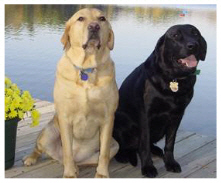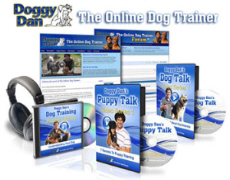Recognize a Dog's Nature and Work With It
Dogs Love to Explore
It's important to remember that dogs have, it has been estimated, the mental capacity and reasoning ability of a two year old child. Like a child unrestrained and untrained, a dog can be very destructive. It becomes very important early on to establish where and what your dog has access to in order to channel their energy into behavior that is safe and healthy for them and acceptable and reasonable to the people they live with.
First, it's important not to confuse your dog by giving him toys that are too similar to things around the house that are off limits. For example, don't give your dog an old leather shoe to chew on and not expect your expensive Italian dress shoes to wind up next. Don't give your dog a soft stuffed animal toy if your daughter has a huge collection she is trying to protect. Give your pet toys that have different scents and textures from household items, preferably toys made to stand up to dog chewing. They are many varieties of scented and flavored dog chews and tugs available to choose from.
It's also an important part of your dog's training to establish what areas of the house and yard he can freely have access to and establishing where he eats and sleeps, perhaps purchasing a dog bed that he will quickly recognize as a spot of comfort and security.
Digging is another natural and inevitable exploration behavior that dogs like. It's very important to supervise your dog in the yard especially at first to set the "ground" rules, unless you don't mind spending your time re-plant your shrubs and filling in exploratory pits. There are commercial preparations such as bitter apple and old standbys like cayenne pepper which can be applied around plants or other areas to discourage digging.
Dogs Love to Scavenge
Sometime you wonder what they are thinking. With plenty of nutritious, tasty, food and treats in their lives they still insist on chewing on a dead squirrel, eating grass and plants, ingesting rabbit droppings or their own, invariably getting sick and vomiting only to do it again tomorrow.
We have to remember that cause and effect can be a tough concept for them if the events are separated by any period of time and they are unable to connect the dots. In situations like this we have to establish what is right and wrong for their own health and safety.
It's up to us as a dog's owner to understand their nature, work with it, be creative, and not set unreasonable expectations. That way there will be less frustration for you and your dog and more enjoyable together time.


